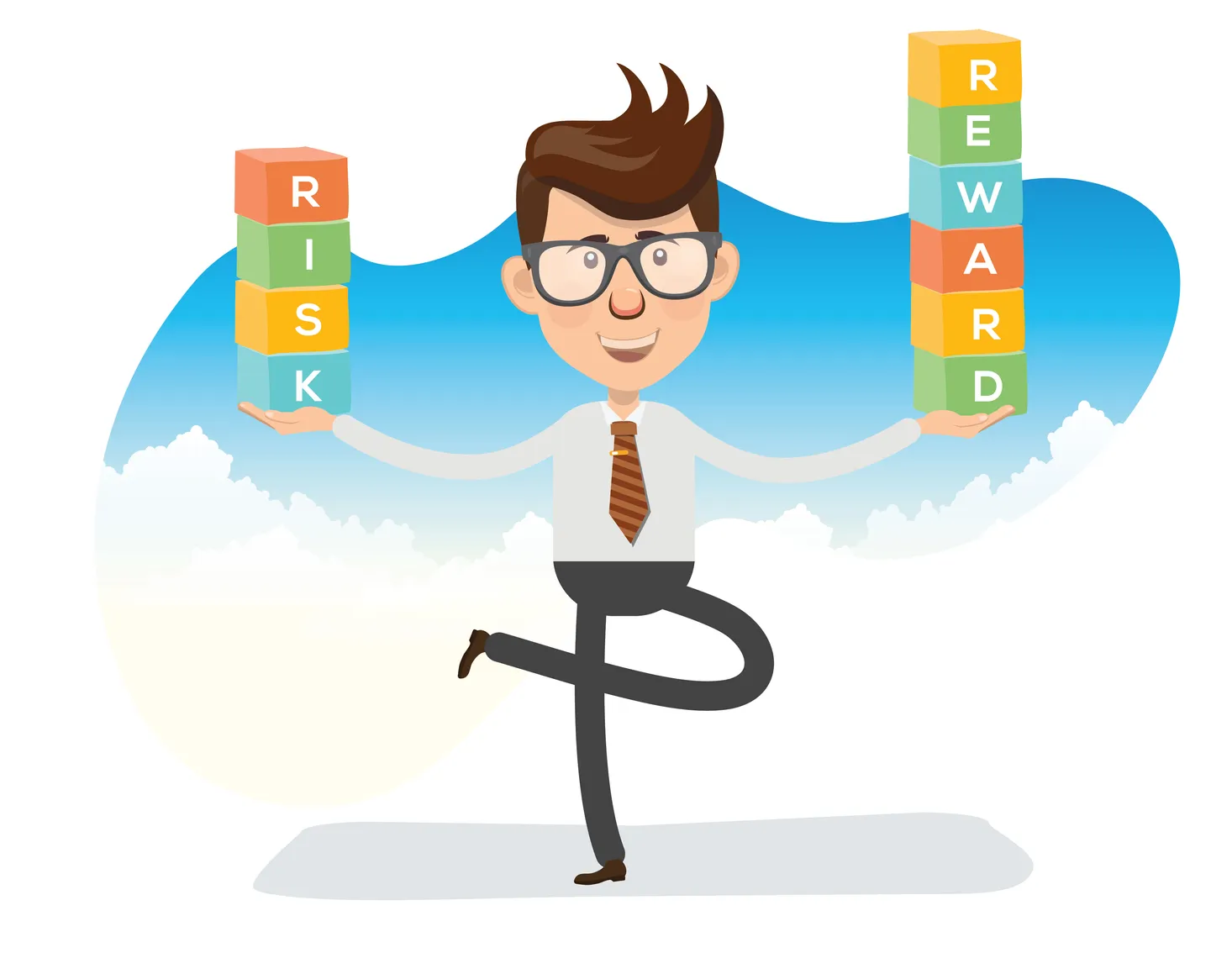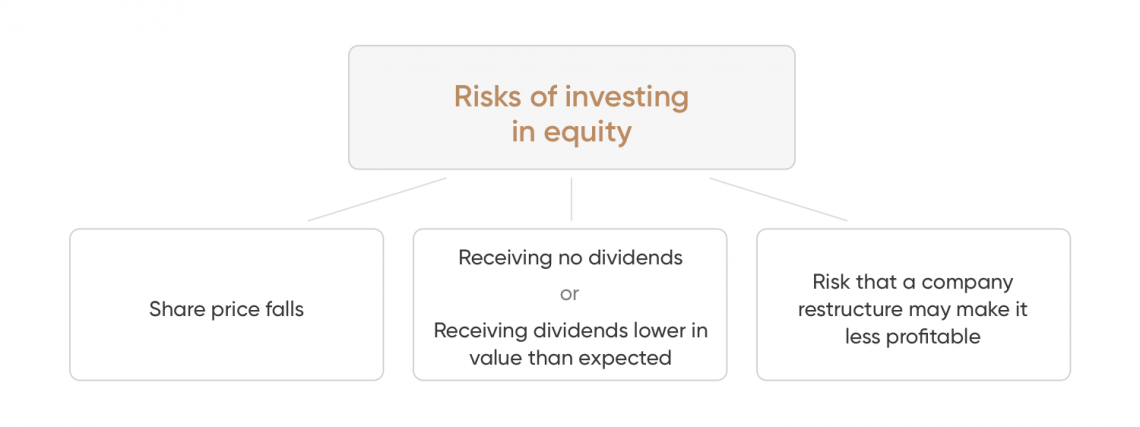What is equity risk?

Investing cash in a company's stock is usually more risky than investing in so-called 'risk free' investments, such as government bonds. This is called equity risk.
Key takeaways
Equity risk is the risk associated with investing in company stock, which is typically more risky than government bonds and other risk-free investments.
Equity risk premium refers to the larger return investors expect to receive for moving their money from risk-free investments to stock market investments.
The risks of equity investing include share price falls, receiving no dividends or lower than expected dividends, and company restructures that reduce profitability.
If a company fails, equity investors may be at the end of a long creditor list and risk not recovering their investment value.
Where have you heard about equity risk?
You may have heard about equity risk in relation to equity risk premium – the larger return investors expect to receive for taking their money out of 'risk free' investments and taking on equity risk by investing in the stock market instead.
What you need to know about equity risk.
The risks of investing in equity include share price falls, receiving no dividends or receiving dividends lower in value than expected. They also include the risk that a company restructure may make it less profitable.

Alternatively a company may fail. If this happens, you may be at the end of a long list of creditors and therefore risk not get the value of your investment back.